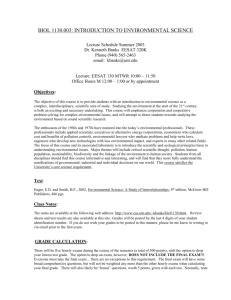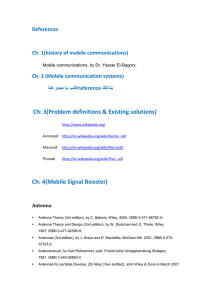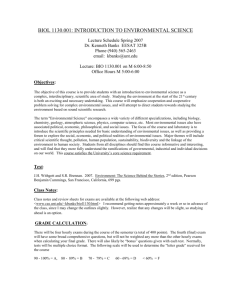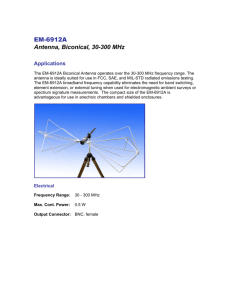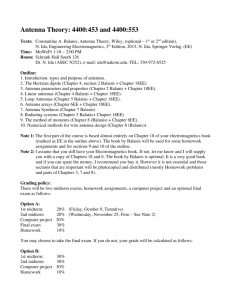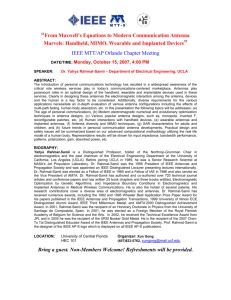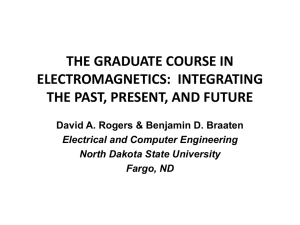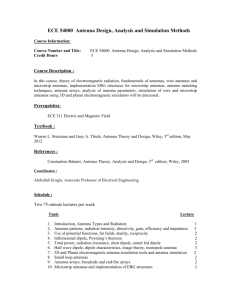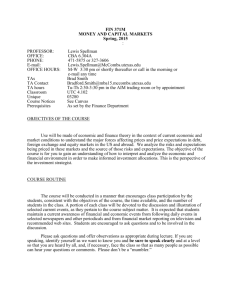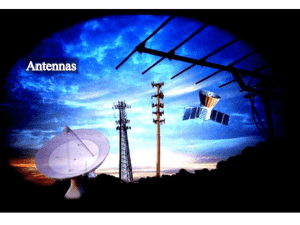Syllabus
advertisement
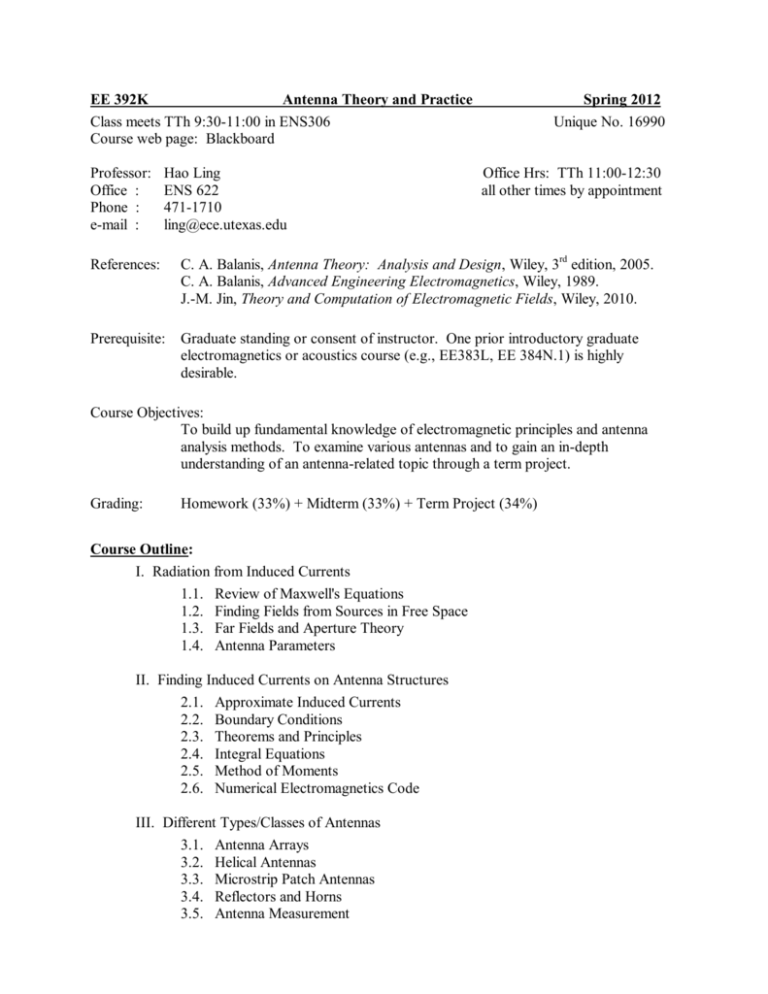
EE 392K Antenna Theory and Practice Class meets TTh 9:30-11:00 in ENS306 Course web page: Blackboard Professor: Office : Phone : e-mail : Hao Ling ENS 622 471-1710 ling@ece.utexas.edu Spring 2012 Unique No. 16990 Office Hrs: TTh 11:00-12:30 all other times by appointment References: C. A. Balanis, Antenna Theory: Analysis and Design, Wiley, 3rd edition, 2005. C. A. Balanis, Advanced Engineering Electromagnetics, Wiley, 1989. J.-M. Jin, Theory and Computation of Electromagnetic Fields, Wiley, 2010. Prerequisite: Graduate standing or consent of instructor. One prior introductory graduate electromagnetics or acoustics course (e.g., EE383L, EE 384N.1) is highly desirable. Course Objectives: To build up fundamental knowledge of electromagnetic principles and antenna analysis methods. To examine various antennas and to gain an in-depth understanding of an antenna-related topic through a term project. Grading: Homework (33%) + Midterm (33%) + Term Project (34%) Course Outline: I. Radiation from Induced Currents 1.1. Review of Maxwell's Equations 1.2. Finding Fields from Sources in Free Space 1.3. Far Fields and Aperture Theory 1.4. Antenna Parameters II. Finding Induced Currents on Antenna Structures 2.1. Approximate Induced Currents 2.2. Boundary Conditions 2.3. Theorems and Principles 2.4. Integral Equations 2.5. Method of Moments 2.6. Numerical Electromagnetics Code III. Different Types/Classes of Antennas 3.1. Antenna Arrays 3.2. Helical Antennas 3.3. Microstrip Patch Antennas 3.4. Reflectors and Horns 3.5. Antenna Measurement POLICY ON SCHOLASTIC DISHONESTY The University defines academic dishonesty as cheating, plagiarism, unauthorized collaboration, falsifying academic records, and any act designed to avoid participating honestly in the learning process. Scholastic dishonesty also includes, but is not limited to, providing false or misleading information to receive a postponement or an extension on a test, quiz, or other assignment, and submission of essentially the same written assignment for two courses without the prior permission of the instructor. By accepting this syllabus, you have agreed to these guidelines and must adhere to them. Scholastic dishonesty damages both the student's learning experience and readiness for the future demands of a work-career. Students who violate University rules on scholastic dishonesty are subject to disciplinary penalties, including the possibility of failure in the course and/or dismissal from the University. http://deanofstudents.utexas.edu/sjs/acint_student.php. RELIGIOUS HOLY DAYS OBSERVANC POLICY The Texas Education Code specifies that an institution of higher education shall excuse a student from attending classes or other required activities, including examinations, for the observance of a religious holy day, including travel for that purpose. A student whose absence is excused under this subsection may not be penalized for that absence and shall be allowed to take an examination or complete an assignment from which the student is excused within a reasonable time after the absence. A student who misses classes or other required activities, including examinations, for the observance of a religious holy day should inform the instructor as far in advance of the absence as possible, so that arrangements can be made to complete an assignment within a reasonable time after the absence. http://www.utexas.edu/student/registrar/catalogs/gi03-04/ch4/ch4g.html#attendance STUDENTS WITH DISABILITIES Please notify your instructor of any modification/adaptation you may require to accommodate a disability-related need. You will be requested to provide documentation to the Dean of Student's Office in order that the most appropriate accommodations can be determined. Specialized services are available on campus through Services for Students with Disabilities. http://www.utexas.edu/diversity/ddce/ssd
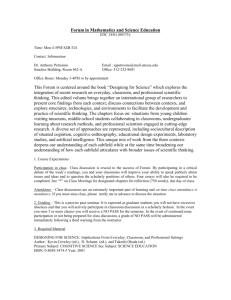
![EEE 443 Antennas for Wireless Communications (3) [S]](http://s3.studylib.net/store/data/008888255_1-6e942a081653d05c33fa53deefb4441a-300x300.png)
